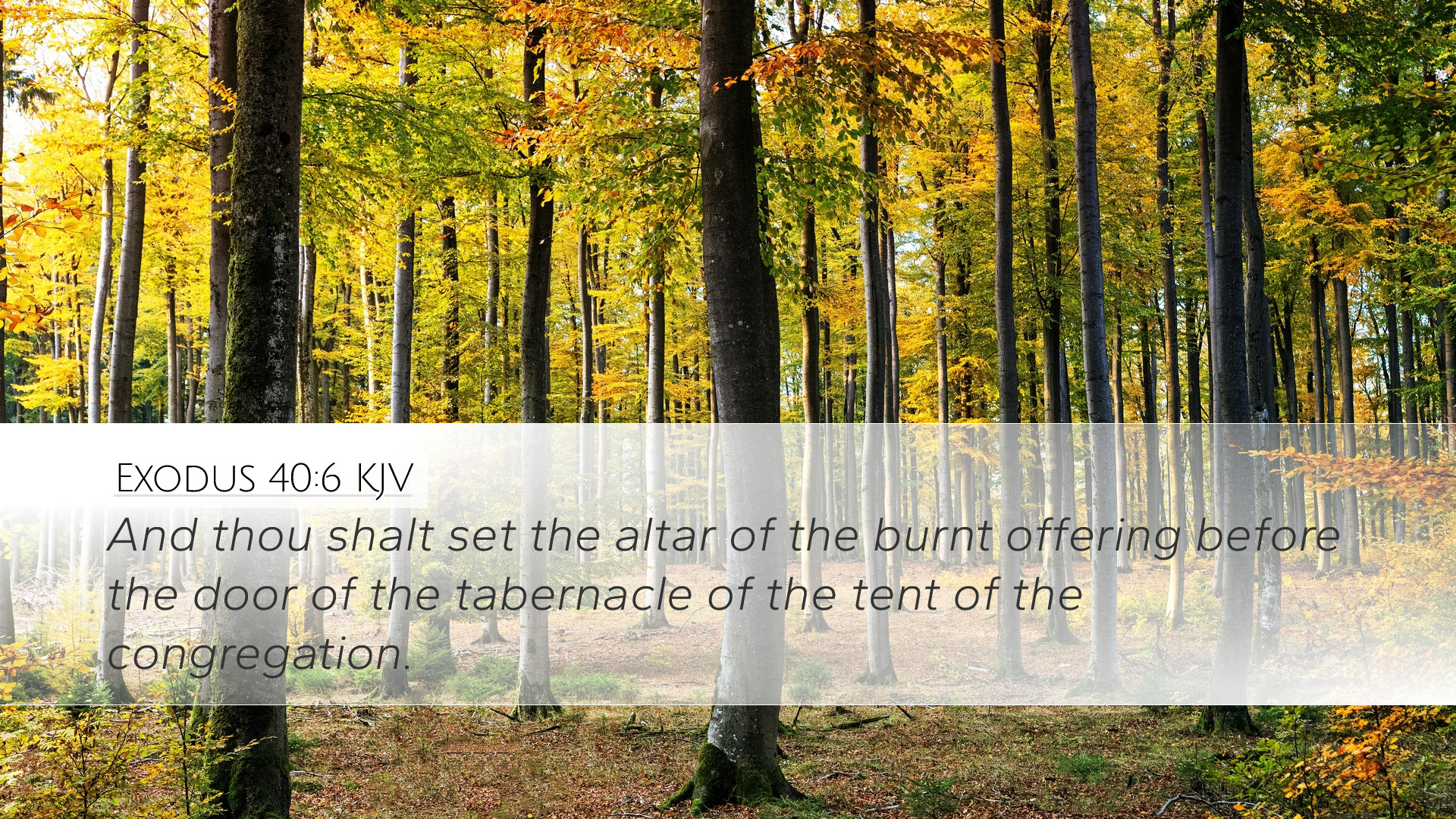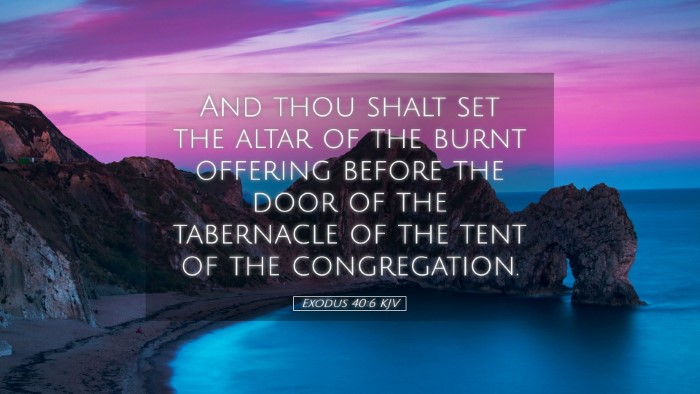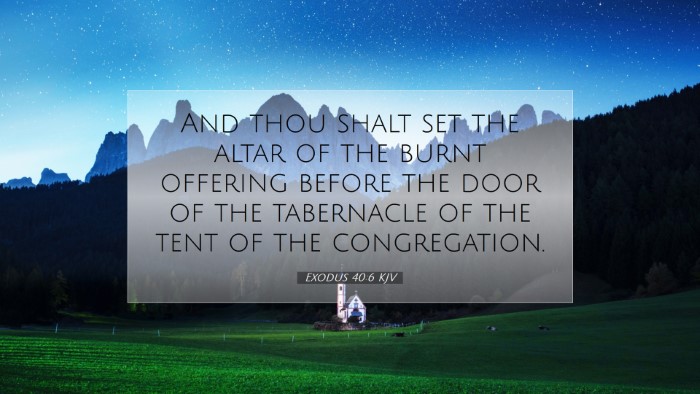Commentary on Exodus 40:6
Verse: "And thou shalt set the altar of the burnt offering before the door of the tabernacle of the tent of the congregation." (Exodus 40:6, KJV)
Introduction
This verse capstones the instructions for the setting up of the Tabernacle, highlighting the critical role of the altar of burnt offerings in Israelite worship. The placement of this altar is significant, serving both a liturgical and theological purpose. Commentators such as Matthew Henry, Albert Barnes, and Adam Clarke provide rich insights that elucidate the importance of this commandment for understanding the nature of worship and the presence of God among His people.
The Altar of Burnt Offerings
The "altar of burnt offering" is intrinsic to the sacrificial system established in the Mosaic Law. It signifies atonement and the need for sacrifices to approach a holy God.
- Matthew Henry: Describes the altar as a "great type of Christ," emphasizing that the sacrifices serve as foreshadowing of the ultimate sacrifice of Jesus. This altar is a symbol of God's mercy and the means by which the sinful can approach Him.
- Albert Barnes: Notes that the burnt offerings were to be made continually, symbolizing the perpetual need for atonement. This emphasis on continual sacrifice points to the inexorable reality of human sinfulness and the need for redemption.
- Adam Clarke: Comments on the materials and dimensions of the altar that reflect God's surface, where worship and sacrifice fundamentally intersect.
Placement Before the Door
The instruction to place the altar "before the door of the tabernacle" carries profound implications about accessibility to God and the nature of worship.
- Matthew Henry: Points out that the altar's location signifies that all who enter into the presence of God must first acknowledge their need for atonement. The altar serves as a reminder that purity in worship is grounded in the sacrificial system.
- Albert Barnes: Reflects on the symbolic nature of the altar's location, stating that it represents the position of confession and the heart's readiness to seek forgiveness. It stresses that the first step in true worship is the acknowledgment of one’s sins and the need for God's grace.
- Adam Clarke: Discusses the architectural and spiritual significance of the "door of the tabernacle," suggesting that it is a symbolic threshold, where human inadequacy meets divine holiness.
Liturgical Implications
The verse has notable implications for understanding liturgical practices within Israel that still resonate within contemporary worship contexts.
- Matthew Henry: Asserts the importance of structure in worship, where each element, like the altar, serves a predetermined purpose in leading the worshiper closer to God.
- Albert Barnes: Comments on the necessity for the community to gather around the altar, emphasizing that worship is not merely personal but communal—intending to invite the community into collective guilt and reconciliation.
- Adam Clarke: Analyzes how this practice foreshadows the communal aspects of the Church, where congregants gather to bring their offerings, acknowledging their shared need for atonement.
Theological Reflections
This verse invites deep theological reflection about God's holiness and the nature of His relationship with humanity.
- Matthew Henry: Provokes thoughts on Christ as the true altar and sacrifice, redirecting the worshiper's attention from the physical altar to the spiritual atonement brought by Jesus.
- Albert Barnes: Encourages a reflection on God’s presence; the very act of setting up the altar signifies God’s intention to dwell amongst His people, highlighting the necessity for relational closeness.
- Adam Clarke: Indicates that the details in the instructions reveal God's intimate awareness of human needs in their worship practices, underscoring His desire to be worshiped correctly.
Conclusion
Exodus 40:6 serves as a pivotal verse in understanding the nature of worship under the Old Covenant. It not only instructs on the physical setup of the Tabernacle but also conveys deeper spiritual truths about atonement, relationship with God, and the necessity of sacrificial offerings. The insights provided by Henry, Barnes, and Clarke provide a composite understanding that is meaningful for pastors, theologians, students, and scholars alike.


